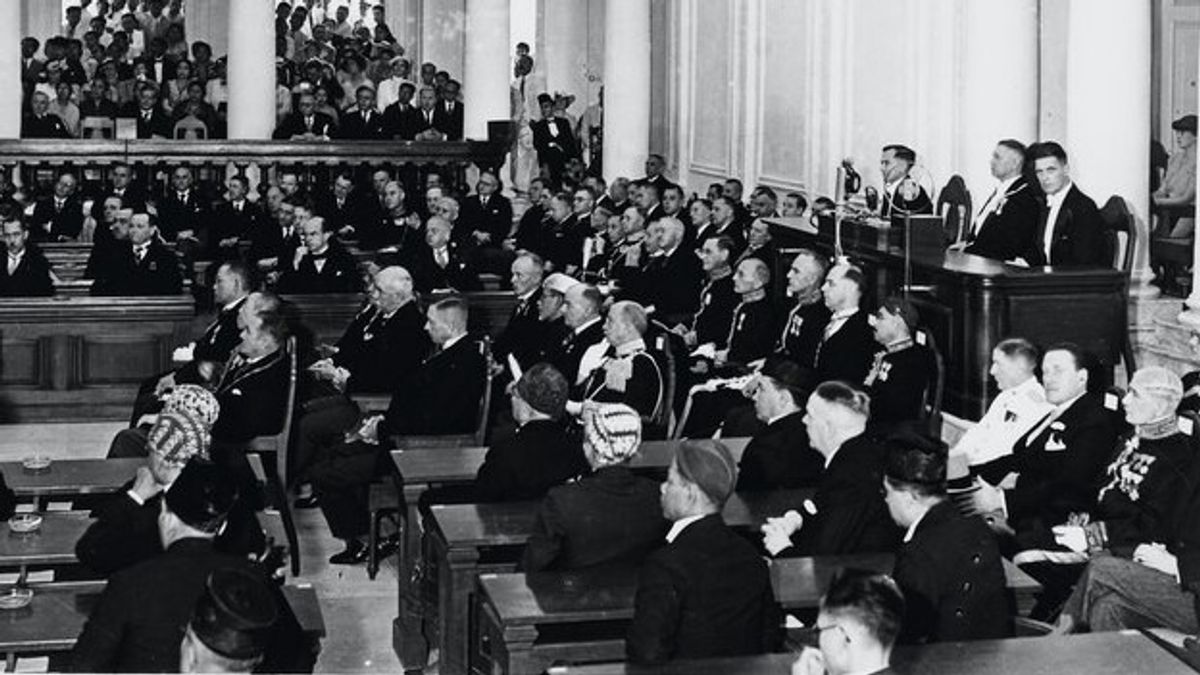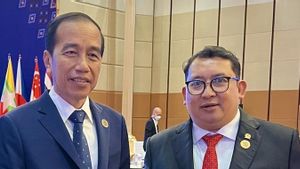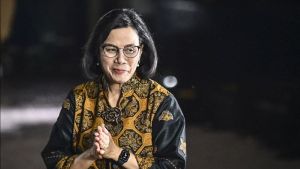JAKARTA History today, 85 years ago, July 1, 1938, Raad van Indie wrote a letter to the Governor General of the Dutch East Indies Alidius Tjarda van Starkenborgh Stachouwer. The governor's advisory body expressed concern over the breakthrough of Volksraad members (now: a kind of DPR) Mohammad Husni (MH) Thamrin.
The independence fighter became the first person to perpetuate Indonesian in the Volksraad trial. The move is considered dangerous and disrupts the existence of the Dutch in the archipelago. Previously, the popularity of the Indonesian language increased after the Youth Pledge.
The uniqueness of the bumiputra youth has been present since the Dutch colonial era. Those who have access to education are not always busy thinking about their own destiny. This is because education actually opens their sensitivity to the fate of all natives who are treated unfairly by the Dutch.
They also tried to unite their minds. The results were brilliant. Youth from various regions were collected in Batavia from April 30 to May 2, 1926. The momentum was later widely remembered as the First Youth Congress.
Thoughts related to Indonesian unity began to emerge. They began to perpetuate independence ideas. All youths want to follow up on the struggle seriously. The idea of perpetuating the Second Youth Congress was also present.
The celebration took place on 27 and 28 October 1928. All Indonesian youths also perpetuated the important congress results. Youth Pledge, his name. Youth Pledge invites all native youth to have one homeland, one nation, and one language: Indonesia. The message was then circulated by all youths throughout the archipelago.
Dengan jalan begitu banyak bahan keterangan yang dapat dikirimkan pulang pulang melalui lautan luas. Pada tanggal 28 Oktober tahun 1928 Soekarno dengan resmi mengirakan ibuman khidmat: Satu Nusa, Satu Bangsa, Satu Bangsa, Satu Bahasa.
"In 1928 for the first time we sang the song Nationality of Indonesia Raya. And in 1928 I was also charged in front of the People's Council," explained Bung Karno as quoted by Cindy Adams in the book Bung Karno: Connecting the Tongue of the Indonesian People (2014).
The influence of the Youth Pledge quickly spread to the people of the bumiputra movement. Independence fighters from Betawi land, Thamrin let alone. He, known as a freedom fighter, sees the Youth Pledge as an opportunity to unite the bumiputras.
Mainly, to expand the influence of Indonesian language as a unity language. He also began to use Indonesian in Volksraad (People's Council) sessions. His courage provoked the attention of the Dutch.
The use of Indonesian is considered capable of disrupting the existence of Dutch power. At its peak, Raad van Indie then wrote to the Governor General of Tjarda on July 1, 1938. They are afraid that the situation will become more dangerous and dangerous because Indonesian languages will continue to be used and will continue to attend the Volksraad trial.
In Volksraad (People's Council), the National Faction under the leadership of MH Thamrin announced that he would use Indonesian in the sessions. The intention of the Faction has received the attention of Raad van Indie (Counselary Board of the Governor General), who in his letter, July 1, 1938, told the Governor General that Thamrin's intention would cause political difficulties.
"This difficulty can lead to a serious situation The use of Indonesian language (in the text of the letter is written het Maleis), because according to Raad van Indie it will have a propaganda meaning for the national movement and this will be the first step towards widely using the language in Volksraad," said Marwati Djoened Poesponegoro in the book Indonesian National History Volume V (2008).
The English, Chinese, Japanese, Arabic, and French versions are automatically generated by the AI. So there may still be inaccuracies in translating, please always see Indonesian as our main language. (system supported by DigitalSiber.id)










